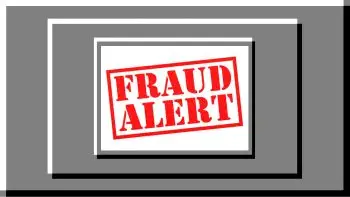Amazon is once again dealing with issues regarding review fraud among its sellers.
What is the new problem and how does this stack up with other similar issues Amazon has had in the past?
Review Fraud
On Sunday, the Wall Street Journal published a report stating that a set of Amazon employees were taking bribes to delete harmful and negative product reviews that some customers had against particular sellers. Amazon responded on Monday by saying that they are launching an investigation into the matter in hopes of discovering the rogue employees to eliminate the issue.
According to the story, the problem is “particularly pronounced in China.” The Amazon employees were offering not only to remove harmful reviews but also to allow these sellers access to private Amazon sales metrics that the sellers could use to unfairly bolster their brand.
Amazon is taking these claims very seriously, according to a company spokeswoman who spoke with CNN about this ongoing issue:
“We have zero tolerance for abuse of our systems and if we find bad actors who have engaged in this behavior, we will take swift action against them, including terminating their selling accounts, deleting reviews, withholding funds, and taking legal action,” she said.
Although the problem may be more evident in China, many of the employees accused of the crime work inside the United States. As a global company, Amazon will have to face the ramifications of this everywhere.
Why Would Sellers Try This?
Reviews are one of just many things that Amazon considers when deciding where a product will appear through an Amazon product search. While the exact formula is unknown to the public, it’s generally known (and obviously so) that positive reviews from verified customers can help your product gain more visibility in future searches. More visibility means more sales, which means that any money a seller might spend illegally purchasing these reviews would come back to them in the form of future sales.
Although the process is entirely illegal and could result in your Amazon account getting suspended, many sellers get desperate when they don’t see reviews coming across at rates that they’re looking for. In reality, most sellers aren’t doing what they can to get this feedback organically.
As we’ve pointed out here in the past, it’s a good idea to reach out to your customers after a sale to encourage them to leave reviews. Otherwise, people will mostly only review your product if they have something negative to say; people don’t think to talk about something they really liked publicly as much as something they disliked. Sellers can easily see their review rates rise with this one simple trick, and that can legally do the job that many of these sellers tried to do illegally. Those who took part in this review fraud exercise will now face severe consequences as a result.
If you partake in purchasing illegal reviews, there’s very little that Amazon Sellers Lawyer can do to help you get your account reinstated. Don’t do it.
What’s the History of this Problem?
Review fraud is hardly a novel concept in the online selling world, but it is something that has grown in prominence over the last couple of years. In fact, Adina Grodsky, here at Amazon Sellers Lawyer tackled this issue in early July and discussed what kind of process sellers often go through to get fake reviews.
Reviewers get paid to write fake posts discussing the product(s) they received. In many cases, they either receive the product for free (so they get to keep the product) or they pay at a substantial discount. In the case of the latter, it seems that after the review is complete and posted, the reviewer ships the product(s) back for a refund in accordance with Amazon’s standards. This system has created “an extensive, invisible workforce fueling a review-fraud economy that persists in every corner of the largest marketplace on the internet”.
The above paragraph describes the process of a “verified customer,” which is a tag that is applied to reviews where Amazon can confirm the customer truly did purchase the product. That adds some authority to the review in the eyes of fellow customers who want to make sure they’re getting the product they want.
Amazon tends to get suspicious of sellers who have a greater percentage of reviews to products sold than the average seller. They also get suspicious of sellers who tend to have a greater percentage of positive reviews than the average seller. Both of those things can be red flags to Amazon employees that something fishy is going on.
However, data like this can be harder to track in countries like China, which is why it is a more common practice there in general. If you’re less likely to get caught, you’re more likely to shell out the cash it takes to get better reviews.
It’s no surprise that this issue has popped up in China. What is surprising is that Amazon employees are taking these bribes and allowing themselves to be liable for helping some sellers illegally get an edge in their sales. The fact that Amazon is investigating this matter and taking it seriously is a good thing for sellers who play by the rules.
Amazon Review Fraud – Conclusion
Amazon has taken steps in the last several months to tackle the review fraud issue. While it’s unfortunate that this new development shows sellers are getting creative and even more dangerous in their methods, it’s also a demonstration that Amazon takes these accusations very seriously and will always put its customers and sellers before potentially shady profits.
 Anders is a content creator for Rosenbaum Famularo, P.C., the law firm behind AmazonSellersLawyer.com.
Anders is a content creator for Rosenbaum Famularo, P.C., the law firm behind AmazonSellersLawyer.com.
Anders will be earning his degree in journalism from Hofstra and has five years of professional journalism experience. He has written for numerous online and print publications including SB Nation and The Hofstra Chronicle.

